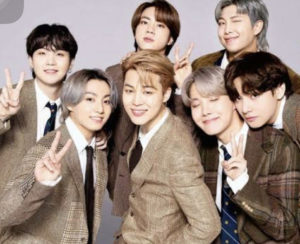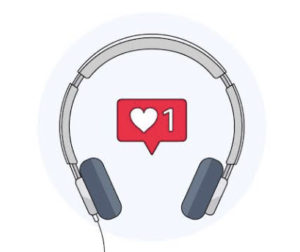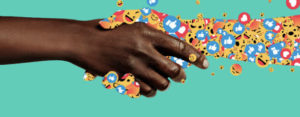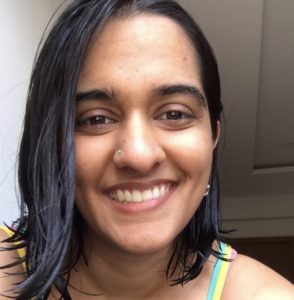A Therapist's Journey with BTS, Social Media and Everything After
Note: I do want to acknowledge, I know BTS and the ARMY support initiatives, engage in very important campaigns and that they create music that does inevitably resonate with so many people. This post isn’t about their talent, hard work, struggles or about value of art. It is NOT an Anti-BTS post, neither is it solely related to just BTS. It is a post (a mere attempt) of musings about art, social media, culture of influence and capitalistic grapplings in this day and age, that I happened to stumble upon through my journey with BTS.
——-
It happened on one Saturday – the first Saturday of July 2021.
I was in a session with my client, a young girl who was very upset with her mother and I. I could see that she didn’t trust me anymore. She didn’t want to talk to me.  She was listening to songs from a band called BTS in session that day. She’d often spoken about them, but I’d barely known anything about them to reciprocate. I knew how important this band was for her in her life though, and it only felt fair for me to be curious about it if I wanted to be a part of her life. And so I did, I got curious and asked her if she wanted to listen to some song along with me. Little did I know, that this session was going to create a huge impact.
She was listening to songs from a band called BTS in session that day. She’d often spoken about them, but I’d barely known anything about them to reciprocate. I knew how important this band was for her in her life though, and it only felt fair for me to be curious about it if I wanted to be a part of her life. And so I did, I got curious and asked her if she wanted to listen to some song along with me. Little did I know, that this session was going to create a huge impact.
We heard the song “Boy with Luv” and I realised that I’d heard this song on the radio before. I just didn’t know it was a song by BTS. What surprised me was, somehow, this person felt safe enough with me in the presence of my curiosity towards BTS. She somehow felt seen, when I chose to see BTS. This changed something within me. Hundreds of sessions I must’ve had by that time, but not once I felt like something had had such a huge impact on my client’s life. I knew there was something special there, something I felt very, very surprised by. Moreover, I felt like I’d taken a certain liking to this song: their voices were very melodious, very smooth and there was an energy to the song that made me feel like I was being told something, personally. There was a slight connection that I’d built with the song myself.
Swayed by these sensations I was experiencing in my body, I saw another client a few minutes later. She also is a K-Pop/ K-Drama fan. We spoke about BTS and listened to a song right at the beginning of our session. DNA, the song’s name was. I chose to start the session with this activity because I wanted to help her start the conversation with safety: and somehow my body already knew this was the way to go. She was so happy with the suggestion and opened up that day about how this is a part of her life that she feels so safe with. I was shook. Again.
How can a boy band from South Korea, whom my clients have never personally met/ interacted with make them feel so safe? “What is the community around them doing wrong? What is BTS doing right? And why are they doing what they’re doing?”
That day on my way back home, I listened to Boy with Luv, over and over again. Somehow, the way they made my clients feel safe, they had started to make me wonder if I’d feel like that too. I felt like I wanted to be seen, heard, feel safe too. BTS had somehow, started making me feel that I had an opportunity of feeling safe, feeling held, seen.
 HOW? Was I mirroring my client’s responses and associating it to the boy band? I’d heard this song on the radio before, and I didn’t care much for it, in fact I had felt quite disconnected because of the difference in the language. What had changed? I didn’t know.
HOW? Was I mirroring my client’s responses and associating it to the boy band? I’d heard this song on the radio before, and I didn’t care much for it, in fact I had felt quite disconnected because of the difference in the language. What had changed? I didn’t know.
I was very astonished by how much I was suddenly resonating with this band, just because of two sessions I had had with my clients in the morning. I was so curious that I started to search about the band and only grew more curious about it. I remember being heavily occupied with their videos that weekend. I did nothing but watch BTS and access was NOT a problem.
There are just so many videos of them available on youtube and instagram. So many. I remember watching their music videos and videos of them doing some activities, but most importantly videos of how they are with each other and others. I really wanted to be able to discern who was who in their music videos, especially after I saw videos of them interacting with each other and being caring towards each other. They were so candid and fun loving in those videos. I wanted to know more about them. So many videos of just how different they are from other artists – humble, not conscious/pretentious, sweet, thoughtful, open. The curiosity grew: I asked myself – “Are they really different?”
I saw videos of them that were making me feel happy, but there was a rising disbelief along with sensations of happiness. Something within me kept telling me: “Pooja, don’t believe this.” And at the same time, I equally drew myself deeper into more and more videos as they kept popping up. Social media’s algorithms had their claws deep within my phone now, and had left no effort in ensuring abundance of BTS videos/pictures to show me who they are.
Firstly, the tentativeness of their art – my tentative interaction with the stories being told by them as artists, had disappeared. There was no fluidity and perception – moments of connection, moments of disconnection with their art for me.
This is a very tricky aspect with famous artists: especially with celebrities and artists about whom we know so much through social media, and yet don’t know much about (BTS having a strong fandom presence too). It is slightly easier, when celebrities have lesser presence online, to not project onto them endlessly; there is less opportunity with lesser content to engage in. But when they’re making themselves visible beyond their art on social media, it is very, very difficult to differentiate between and view objectively their art and them as artists: for their better or worse.
Secondly, I eventually, before I knew it, started fantasizing imaginary scenarios in my mind. Ah, fantasizing. Somehow, our mind always looks at possibilities of impossible situations – good and bad. It started off very innocently – I felt like it would be nice to be around these people, if they truly are so candid, fun and caring/thoughtful. I started then wondering if I was a part of their lives, what would it look like? I started imagining what my interaction and relationship would be like with each of them – based on what I was able to perceive as their personalities in the videos. I was fantasizing being a part of someone’s life who already fit ideas of what is considered desirable by the society I’m a part of (I’m cognizant of their own struggles that the members have had to deal with in the past, to get where they are right now, and am in no way minimalizing their struggles as I write this). Fantasizing is powerful. It has the ability to make us feel an emotion, even if the situation eliciting the emotion isn’t happening in reality. I could feel better just by imagining interacting with BTS.
 We associate desirability to a lot of different visible/ not visible aspects of a person’s life – their looks, their behaviours, their reactions towards others, others’ reactions towards them, their abilities, their confidence, their verbals/ non verbals, colour, articulation, their lifestyle, even their geographical location, etc. And I think we often forget how much we’re influenced by ideas of what is “desirable” in the society. We’re always trying to complete our lacking selves and make ourselves more desirable, by fitting these ideas.
We associate desirability to a lot of different visible/ not visible aspects of a person’s life – their looks, their behaviours, their reactions towards others, others’ reactions towards them, their abilities, their confidence, their verbals/ non verbals, colour, articulation, their lifestyle, even their geographical location, etc. And I think we often forget how much we’re influenced by ideas of what is “desirable” in the society. We’re always trying to complete our lacking selves and make ourselves more desirable, by fitting these ideas.
This is the impact of the pain that these ideas have inflicted upon us, causing us to divide and rule amongst ourselves. Inevitably, I’m a part of this system too and I’ve felt this pain, over and over again. It’s painful to grapple with these ideas that are represented on social media – ideas constantly influencing me about how I or my life should be. Does my desirability index on social media really define my worth to be seen, held, heard as a human being? How had a weekend of my life trying to be curious about a band impacted me this way? What are we as a community striving towards when we’re striving to meet the desirability indices of social media? How much is social media impacting / influencing the way we connect with different art – is there a hierarchy being formed here too? Are there ways in which we resist this hierarchy?
Do famous artists then have any responsibility towards how they represent themselves/their lives ( with social media increasing access), when they have as much power to influence millions as they do? Who must be held accountable here – artists, their labels, social media, consumers/audience (those who end up putting artists on a pedestal)? I’m not sure. After all, the clutches of capitalism in every industry do run deep and strong. I write questions I don’t have answers for. I write with some heaviness, another story of a familiar system taking over, and wonder curiously how do we/ are we already navigating through these capitalistic grapplings?

Pooja Gupta
Pooja Gupta is Pause for Perspective's therapist who specializes in seeing children and families. She is a supervisor, a writer and engages in ideas of mindfulness and social justice passionately in her work. This article is written by her. To contact her or know more about her you can go here:http://pauseforperspective.com/about-us/our-team/pooja-gupta/
